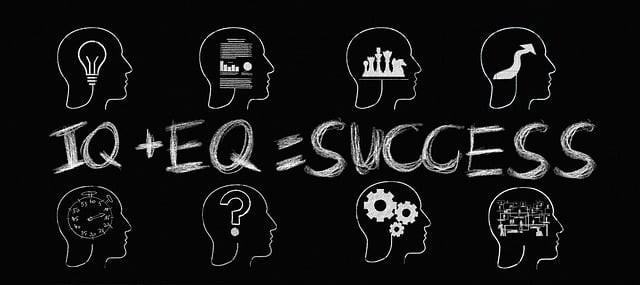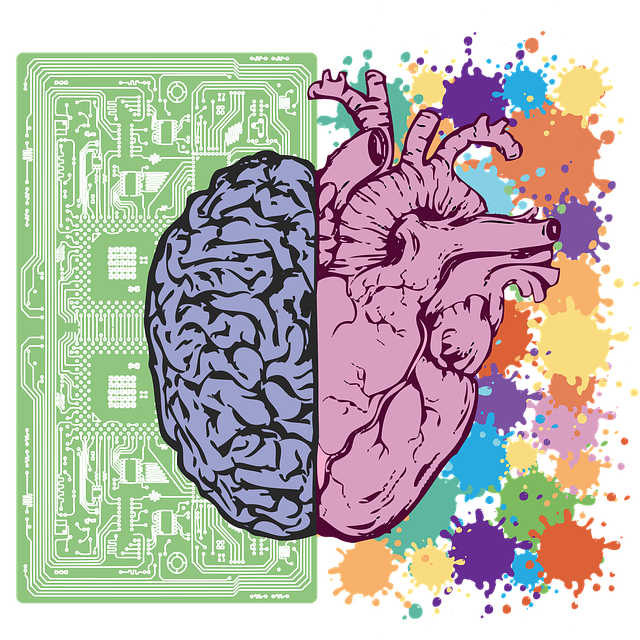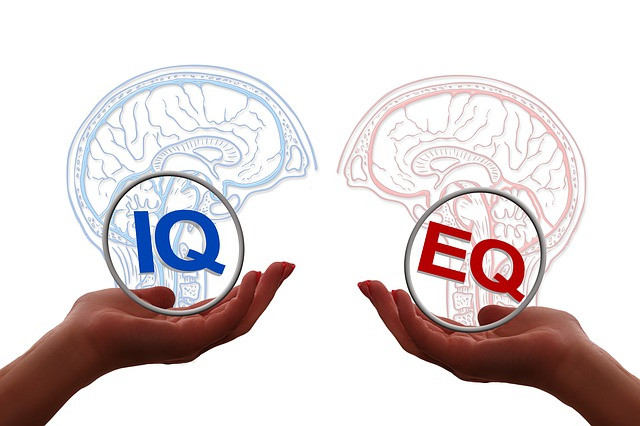
Unlocking the Uplifting Power of Emotional Intelligence

Discovering the power of emotional intelligence (EI) can help us to understand and control our human emotions, boost relationships, and aid in personal development. In this article, we are examining EI’s roots, aspects, and effect on accomplishment as well as useful ways for capitalizing on your feelings.
Short Summary
Emotional Intelligence (EI) involves recognizing emotions, understanding their meaning, and managing one’s own emotions.
It consists of four components: emotional perceptions, reasoning, understanding, and management.
EI has been proven to be a key factor in achieving success. It can be developed through practices such as training, mindfulness, and self-awareness.
Table of Contents
Understanding Emotional Intelligence (EI)

We can define emotional intelligence as the capability to identify emotions, both in ourselves and others, make sense of them, and regulate our own feelings adequately. Empathize with people around us while understanding their affective reactions, as well as using sentiment for guiding thinking patterns and behavior.
Achieving a high level of EQ – that is high emotional intelligence quotient – confers significant benefits when building interpersonal relationships or furthering personal development. High emotional intelligence is often more vital than technical proficiencies or IQ scores.
The concept was first proposed by Salavoy & Mayer in 1990 but gained traction after Goleman’s 1995 publication about it. Emotional competence consists mainly of self-awareness capabilities; being able to grasp others’ emotions properly and having empathy towards each one’s experiences along with potential competencies regarding controlling your feelings better if necessary.
These amenities are vitally important so we could utilize how influenceful emotion might be on thoughts and actions taken plus learning strategies aimed at increasing conscious control over this factor. High heightened cognitive and emotional abilities result in improved social skills which translates naturally to success while simultaneously boosting mental wellness significantly.
The Origin of Emotional Intelligence
In 1990, Peter Salavoy and John Mayer coined the term “emotional intelligence” to refer to an individual’s capacity for understanding and managing emotions. This concept gained widespread recognition with Daniel Goleman’s book in 1995, which offered advice on how we can elevate our emotional intelligence skills. Since then, research has greatly increased regarding the subject of EI – particularly its many components as well as its use both professionally and personally. One example is stress.
It often hinders one from correctly analyzing another person or oneself due to a lack of emotional awareness resulting from high-pressure environments. Developing your ability at emotionally intelligent practices allows you to handle daily life better while also improving improve your emotional and cognitive intelligence and overall emotional comprehension.
Components of Emotional Intelligence

Emotional intelligence is an important concept, which involves recognizing and managing one’s own emotions, as well as perceiving the feelings of others. It requires a keen understanding of four distinct areas of human intelligence: emotional perceptions, reasoning, comprehension, and management.
This knowledge is critical to successful interpersonal relations since it enables people to interact with emotionally intelligent people with empathy and better assess what other individuals are feeling or thinking through their facial expressions or body language, thus improving their social skills.
Cultivating strong self-confidence and higher emotional intelligence helps allow for smoother communication between two parties when discussing difficult conversations or complex issues that involve complicated human emotions at play. Such as anger or sorrow, all of which must be addressed properly if any real solution can be found. Becoming more self-aware can lead us to make decisions more carefully instead of just following our instincts based on impulse alone.
Emotional Perception
The ability to identify emotions in ourselves and others is known as emotional perception. Being conscious of one’s own feelings plays an essential role here since it influences the way we interpret our environment, retain memories, and make decisions.
Observing body language such as facial expressions or posture can reveal much about a person’s emotional state— thus by paying attention and being attentive to these non-verbal cues, we are able to comprehend other people’s sentiments more clearly which enables us better communication, ultimately leading to stronger relationships.
Emotional Reasoning
Emotional reasoning is an erroneous approach to decision-making, whereby people base their conclusions on how they feel instead of facts. It can lead to inaccurate self-assessments and the creation of poor solutions for problems.
Those with anxiety disorders commonly succumb to this type of distorted thinking. Through boosting emotional intelligence, researchers suggest these individuals may be able to learn not just when they are using it, but also find ways around engaging in such unhelpful behavior so as to make more valid decisions.
Emotional Understanding
Emotional understanding is the skill of recognizing, decoding, and responding properly to emotions in ourselves and others. This involves being self-aware, of both positive and negative feelings that can range from low-key to very intense – it’s a component of emotional intelligence. Our own personal reactions to understanding emotions may be due to biological factors or even result from psychological, emotional experience social, etc. We can identify other people’s sentiments by perceiving their body language, expressions, and what they say. To understand the emotional level of another person, you also need empathy, which establishes greater bonds with them too.
The implications resulting from this comprehension are far-reaching including improved communication leading to more beneficial relationships along with heightened self-awareness plus aiding in decision-making processes helping achieve success personally and professionally alike.
Emotional Management
The ability to handle one’s feelings, thoughts understand emotions, and behavior in a productive manner is the key element of what emotional management comprises. This includes the identification and regulation of emotions without assigning them any value, letting individuals take logical actions in situations they face.
Having mastery over these processes has several advantages: obtaining an insight into both your own emotions as well as how emotions influence those around you, improved communication, and better judgment-making capacity. Increased productivity overall.
To be successful at managing one’s emotions involves self-consciousness unless cultivation, perceiving how one’s feeling before taking action or saying anything so that only positive statements are made about oneself (self-talk) alongside finding ways for relaxation which would bring comfort such as good care strategies for yourself.
The Impact of Emotional Intelligence on Success

Emotional intelligence is often more critical than IQ and other technical skills and aptitudes for achieving personal and professional success. It facilitates progress in developing strong relationships, decreasing workplace tension, resolving disputes, as well as augmenting job satisfaction. Emotional intelligence can enhance corporate fiscal performance too.
Studies have revealed that those with high EI (emotional quotient) may encounter improved results at their jobs, experience deeper bonds, and improve self-esteem. Plus adeptly manage stress under tough circumstances, thus promoting the greater overall welfare of individuals all around.
Accordingly, having a heightened degree of emotional ability brings the potential to open up opportunities and assist people reach their ambitions both professionally and personally – making it clear why this kind of talent deserves recognition when striving towards greatness and fulfilling goals.
Developing Emotional Intelligence
By spending effort in honing their emotional intelligence, individuals can become more aware of themselves and develop a clearer understanding of their emotions. Enhancing these crucial skills also has the potential to lead to success on both personal and professional levels.
Investment into EI helps with gaining greater knowledge about one’s own feelings as well as strengthening communication, cognitive abilities, and leadership abilities, all of which facilitate growth toward positive outcomes.
Emotional Intelligence Training Programs
International Health & Happiness Professionals (IHHP) offer emotional intelligence training programs to improve self-awareness, communication, and leadership capabilities. These courses provide a useful structure for attaining the essential skills needed to become an emotionally intelligent individual.
With IHHP’s emotional intelligence training, people are able to refine their EI aptitude resulting in improved personal relationships, employee productivity, as well as overall well-being. By taking part in these curriculums participants learn how to identify emotions better, and comprehend emotional intelligence tests making them more accurately communicate effectively along with key skills along with handling those feelings effectively – allowing them to unlock all of their potential eventually.
Mindfulness and Emotional Intelligence

The connection between mindfulness and emotional intelligence is well documented, especially when it comes to managing emotions in challenging relationships. Mindfulness activities such as meditation can help enhance this kind of emotional knowledge, by increasing self-awareness and improving the ability to regulate emotion.
This entails paying careful attention to one’s own thoughts and feelings in order for better decision-making skills that lead to a more successful life with improved relationships with others. Emotional intelligence flourishes through heightened reflection on how our responses shape behavior, which then helps us control ourselves accordingly when we face challenging situations emotionally.
The Role of Empathy in Emotional Intelligence
Having the capacity to understand and share the feelings of others, which is known as empathy, is a key part of emotional intelligence. Through active listening and considering different points of view, one can improve emotional intelligence and learn how to cultivate it. This leads not only towards greater interpersonal skills and communication proficiency but also more satisfying relationships with better productivity outcomes in general.
Social awareness plays an indispensable role when it comes to having empathy because without this ability we would be unable to recognize nonverbal cues from other people’s behavior thus hindering our understanding of their perspectives or needs for effective cooperation in resolving issues together.
Cultivating empathy has numerous benefits that support physical health and overall well-being – Apart from being emotionally intelligent individuals, by relating deeper with those around us, we create conducive atmospheres that facilitate personal growth along success trajectories all at once.
Balancing Emotional Intelligence
Gaining control over emotional intelligence is vital as it can have positive outcomes in both personal and professional spheres. In order to ensure we take advantage of the benefits, yet avoid pitfalls, a balanced approach needs to be taken by recognizing our own and improving emotional intelligence competencies and how they may affect behaviors.
This understanding allows us to keep emotions under control while staying connected with them at all times so that success comes naturally through the mindful use of emotionally intelligent approaches.
Practical Applications of Emotional Intelligence
Developing emotional intelligence is a great way to reach our potential and gain various benefits in both our professional and personal lives. Practical uses of this concept include improving communication, management, and problem-solving skills as well as strengthening relationships between people. Cultivating EI allows individuals to become more aware of their own emotions and learn how best they can be managed for better decision making leading to higher levels of satisfaction with life overall.
Emotional intelligence has been associated with many positive outcomes at work, from job performance to increased leadership abilities to managing difficult situations that may arise within teams or organizations. It’s widely that emotional intelligence research beneficial also on the individual level by creating deeper bonds among peers along with increasing general happiness which leads us toward greater contentment ultimately.
We must understand the importance of having an emotionally intelligent attitude. One worth investing time into since its applications are almost limitless concerning all aspects of life. By building up these essential tools and soft skill sets, anyone could make strides towards becoming a truly emotionally intelligent person who will reap immense rewards both now and in the future prospects!
Summary
By exploring the fascinating world of how emotional intelligence is, its effects, and practical methods to develop it, we can get an understanding of how this crucial skill impacts our own personal life, and professional lives. Through EI training programs such as mindfulness or learning empathy skills, one can strengthen relationships while deepening their connection with others through using emotions in a balanced way. This fundamental ability is paramount for achieving success both inside and outside of work. Opening up possibilities leads to meaningful experiences that are gratifying in many different ways.
Frequently Asked Questions
What does it mean to be emotionally intelligent?
Emotional Intelligence refers to the ability to identify and understand our emotions, as well as those of others. It is essential in managing oneself and forming positive relations with other individuals. This concept involves five crucial elements: self-awareness, motivation, social skills, empathy, and self-regulation being among them. Through these components, one can gain a better understanding of their own feelings along with that of those around them for healthier interactions overall.
What are the 5 elements of emotional intelligence?
Emotional intelligence is an essential part of being successful and can be broken down into five aspects: empathy, communication or social aptitude, self-awareness, the ability to regulate oneself emotionally, and motivation. Understanding each element of low emotional intelligence and social intelligence helps people learn how to manage their feelings better as well as interact productively with others. Self-awareness in particular plays a major role here by allowing individuals to gain insight about themselves, which eventually leads them towards achieving success. Having good social skills enables us to not only respond appropriately but also interpret others’ emotions correctly while regulating our own will assist us from acting irrationally when acting inappropriately.
What are the 4 levels of emotional intelligence?
Developing a strong understanding of emotional intelligence is essential for successful communication, managing stress levels, and cultivating positive relationships. There are four core elements that makeup EI – self-awareness, social awareness, self-management, and relationship management, that need to be honed in order to enable effective leaders and to create an environment where everyone can thrive. Being knowledgeable about these components allows one to exercise their own EI skills with greater accuracy thus resulting in better outcomes at work.
What are the keys of emotional intelligence?
Emotional intelligence is a set of skills made up of twelve components: emotional self-awareness, adaptability, positive attitude, empathy towards others, organizational understanding, and influence on those around them. Plus coaching abilities for mentoring purposes. The ability to manage conflict in collaboration with teammates and lead with inspiration. These strong emotional intelligence competencies all fit within four larger domains which are essential – self-awareness, social adeptness, self-control, and relationship management.
What is emotional intelligence?
Emotional intelligence is a beneficial skill that allows us to comprehend and manage our own emotions, enabling us to build stronger connections with those around us. This capability can be extremely valuable in aiding personal growth.

